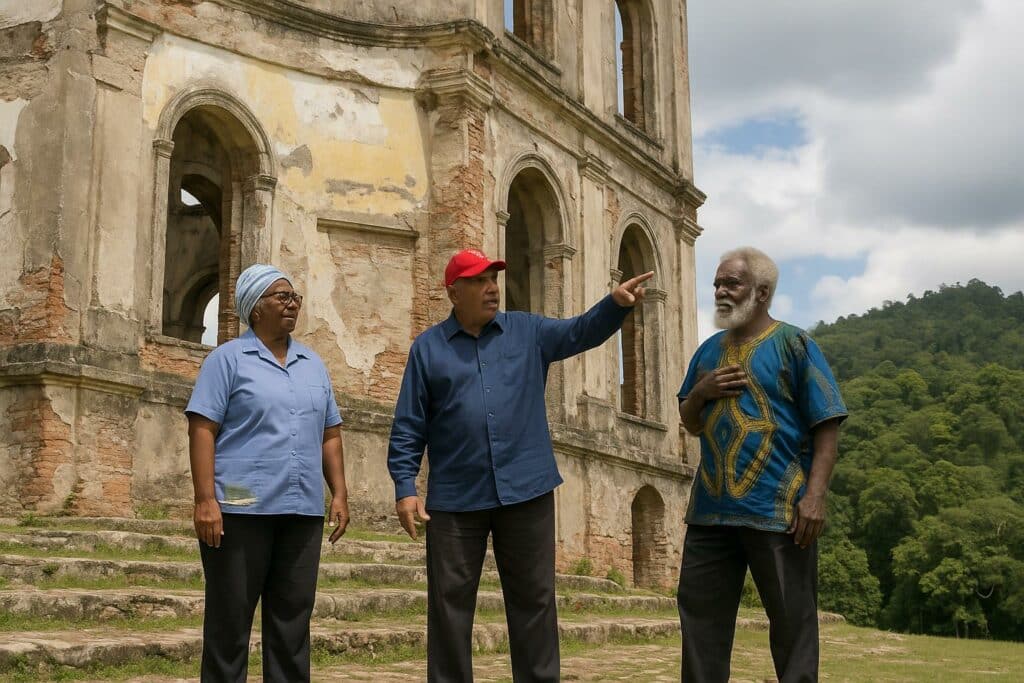Diplomatic momentum in Cap-Haïtien
Cap-Haïtien’s seafront, still marked by the echoes of Toussaint Louverture’s republican optimism, provided a symbol-laden backdrop to the visit of Lydie Pongault, Minister of Cultural, Tourism, Artistic Industries and Leisure of the Republic of Congo. Received on 17 September by her Haitian counterpart Patrick Delatour, the Congolese envoy carried a sealed letter from President Denis Sassou Nguesso to the Transitional Presidential Council, formally requesting Port-au-Prince’s support for the candidacy of Firmin Édouard Matoko for the 2025-2029 mandate at the helm of UNESCO. The Haitian minister, himself an architect by training and a long-time advocate of heritage preservation, welcomed what he described as “a timely re-affirmation of our shared commitment to multilateralism.” (official communiqué).
Far from protocol alone, the encounter illustrated the Congolese diplomacy’s preference for targeted bilateral outreach within the Caribbean, a region that commands twelve votes in the UNESCO Executive Board. Haiti, signatory of the Organisation’s 1946 Constitution and an early defender of cultural pluralism, represents a gateway to this electoral bloc, making Cap-Haïtien a strategic first stop in Brazzaville’s campaign map.
Matoko’s vision for an inclusive UNESCO
Throughout working sessions held at the city hall and the local Alliance Française, Firmin Édouard Matoko, currently UNESCO Assistant Director-General for Priority Africa and External Relations, laid out the key pillars of his programme titled “UNESCO of the Future”. The roadmap, according to briefing notes shared with the Haitian delegation, stresses three priorities: amplifying the voice of small island developing states; reinforcing science-based climate adaptation policies; and scaling up creative-economy financing to meet the 2030 Agenda. “Our Organisation must move from exhortation to facilitation,” Matoko insisted, pledging to shorten administrative cycles for project approval and to enhance regional offices’ budgetary autonomy.
The Haitian side, confronted with post-seismic reconstruction challenges, found resonance in the candidate’s proposal for a ‘Blue Culture Fund’ designed to protect coastal heritage sites while stimulating sustainable tourism. Observers present in Cap-Haïtien noted that the technical depth of the exchanges contrasted with the often generic tenor of electoral tours, suggesting a substantive convergence rather than transactional lobbying.
Shared heritage, shared prospects
Beyond conference rooms, Minister Pongault’s delegation immersed itself in Haiti’s emblematic sites: the Citadelle La Ferrière rising 900 metres above the northern plain, the frescoed ruins of the Sans-Souci Palace, and the conservatory of the National Archives. Each visit echoed Congo’s own efforts to inscribe additional components of the Sangha Trinational landscape on UNESCO’s World Heritage List, weaving a narrative of parallel ambitions for heritage safeguarding.
Curators, music teachers and entrepreneurs in Cap-Haïtien’s burgeoning craft market held informal dialogues with Congolese officials about joint residencies, digitisation of archives and co-production of documentary films. Both ministers instructed their technical teams to draft, within six months, a memorandum of understanding covering training exchanges in museology, tax incentives for creative industries and the mutual circulation of artworks. While the document will require inter-ministerial vetting, its outline signals a shift from episodic cooperation to programmatic partnership.
Strategic stakes for Brazzaville and Port-au-Prince
For Brazzaville, securing Haitian endorsement serves a dual purpose. First, it strengthens Matoko’s numerical prospects in the 58-member Executive Board where each vote can tilt a tight contest. Second, it cements Congo’s broader repositioning as a convenor of South-South initiatives, a diplomatic line championed by President Sassou Nguesso in African Union and Francophonie arenas.
Port-au-Prince, for its part, leverages the courtship to reassert its relevance in multilateral venues at a time when domestic security crises risk marginalising its external voice. By aligning early with a candidacy that foregrounds small island priorities, Haiti not only gains a prospective ally inside UNESCO’s Secretariat but also signals confidence to international partners who increasingly tie assistance to governance benchmarks inside UN agencies.
À retenir
The Cap-Haïtien mission, conducted under the banner of respectful dialogue, has delivered Brazzaville’s formal request for Haitian support and opened negotiations on a comprehensive cultural cooperation accord. It anchors Firmin Édouard Matoko’s campaign in a constituency pivotal for the 2025 Director-General race while offering Haiti concrete avenues for heritage funding and creative-industry stimulus.
Le point juridique/éco
From a legal standpoint, the exchange of letters of intent complies with Article VII of UNESCO’s Rules of Procedure governing electoral campaigns, which encourages transparency without prohibiting bilateral lobbying. Economically, the envisaged memorandum could unlock blended financing instruments—grants, concessional loans and diaspora bonds—whose structuring will need to align with Congo’s Public Finance Act and Haiti’s new Investment Code. Both frameworks cap sovereign guarantees, making public-private partnerships the most viable channel for forthcoming museum rehabilitation or digital-archive ventures.

